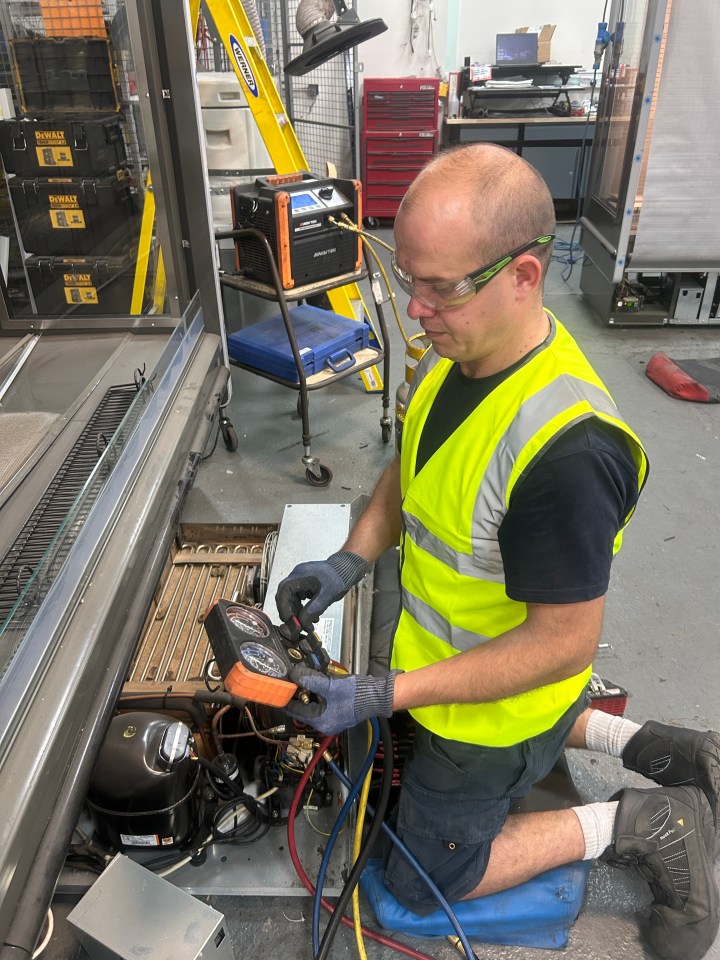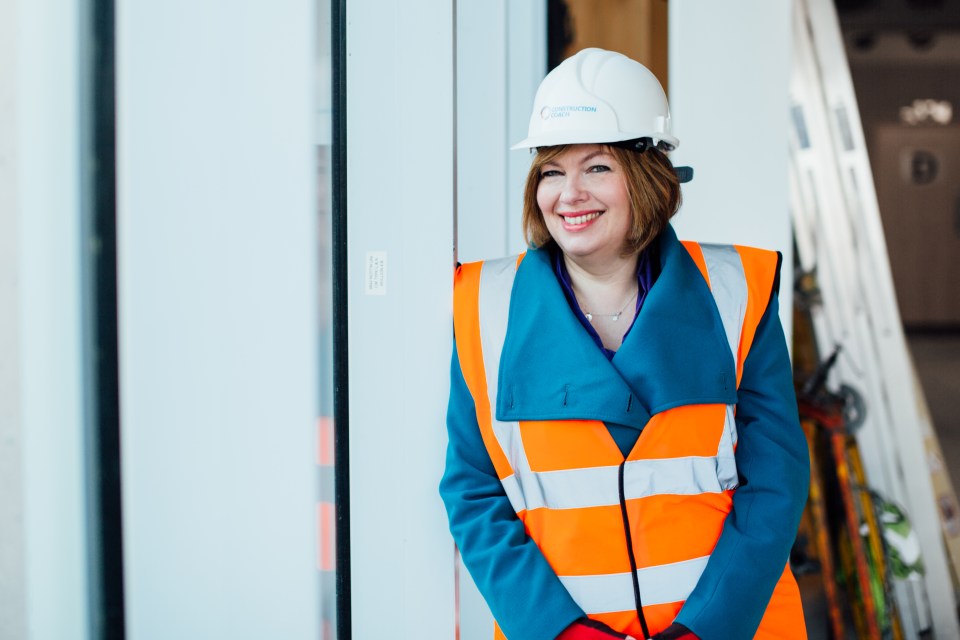PARTS of the UK this week enjoyed their hottest-ever August Bank Holiday, so is it time for you to consider one of the country’s unsung sectors?
The demand for air-conditioning and refrigeration is rising rapidly, with more than 40,000 people already working in the market.
Around 5,000 firms specialise in what is known as the refrigeration, air-conditioning and heat pump industry (RACHP), but it is not a job role that is widely promoted.
“Refrigeration is one of the most important industries you have probably never thought about,” says Lisa-Jayne Cook, president of the Institute of Refrigeration.
“From keeping our food safe to powering life-saving medical equipment, cooling technology underpins modern life.
“It is an exciting, hands-on career with opportunities to travel, problem-solve, and work on cutting-edge sustainable technology.”
read more on sunemployment
Jobs in the sector include service, maintenance and installation roles, but there are also positions in design, consultancy, sales and wholesale.
Tom Wiecek, 38, is a refrigeration engineer for Lowe Rental, which provides cooling systems for top events including Formula One motor racing, Glastonbury Festival and Wimbledon, and well-known store chains.
Tom, from Burton-on-Trent, Staffs, says: “I’m a practical guy and I love solving problems, so becoming a refrigeration engineer seemed like a great way to improve my skills and build a career I’d really love.
“Breaking into the industry isn’t easy and qualifying as a refrigeration engineer takes commitment.
“When I started my course, there were 28 of us, and three years later only six had completed the Level 3 apprenticeship.
“You need a mix of practical skills and the ability to get your head around some pretty complex theory.
“My advice? Get as much hands-on experience as you can while you are learning because it makes studying click into place.
“And if you can, find great mentors. If you enjoy fixing things, like learning new skills, and don’t mind getting your hands dirty, it’s a brilliant career.”
As a growing area, the RACHP industry’s direct contribution to the UK economy is at least £2.4billion a year.
Climate change means there is increased demand for cooling globally, with the UK emerging as one of the world leaders in Net Zero and sustainable systems, plus the use of AI to make refrigeration as efficient as possible.
Even heat pumps rely on refrigeration technology, so there are plenty of opportunities for professionals trained to work with low-carbon and reduced-energy use systems.
Top jobs of the future include skilled AI design engineers to create more efficient cooling systems.
Lisa-Jayne adds: “Whether you are just starting out or looking for a career change, refrigeration offers real purpose, great earning potential and job security in a changing world.”
Sales, marketing, management or hands-on
FIND the best route in for you. Pathways range from apprenticeships to T-Levels and university degrees.
This makes it a great choice whether you’re more hands-on or academically focused.
- Not all roles are engineering based. There are opportunities including sales, marketing and business management as well.
- A commitment to your professional development will pay off. In such a fast-moving sector, staying up to date with the latest developments through training is essential and means you will always be in demand.
- Engineering Council registration will help you stand out from the crowd. It offers formal recognition of your skills, professionalism and commitment as an engineer.
- Network: It’s a friendly and supportive industry, so making contacts with others will help you to find new opportunities and keep your skills up to date. Being a member of a professional body, such as the Institute of Refrigeration, is a great way to stay informed.
RUBBISH? DIVE IN
BIN off your old job for a role with refuse specialists Biffa.
The company is creating more than 250 household waste collection vacancies to prepare for the rollout of the Government’s new domestic recycling rules in England, known as Simpler Recycling.
The positions include waste truck drivers and loaders, supervisors and fleet technicians.
Biffa Municipal managing director Steve Cole said: “Simpler Recycling may be eight months away, but it’s vital we start recruiting now to make sure we have the best people in place for the successful preparation and delivery of this important change.”
If you are interested in getting on board, go to apply.workable.com/biffa.
BUILDER I.T. TOOLS
SMALL construction firms are being offered the chance to build a secure future with a new IT training course.
Award-winning construction coach Maria Coulter is inviting 1,000 SME builder and trade businesses to join a free course called Solving Tech For Small Builders.
It covers advice on choosing the right tech, from AI assistants to project management systems, and tips for using tech to price your projects and manage your client relationships and workforce.
Maria said: “Understanding IT can be the difference between success and failure.
“Think of it like an IT tool kit. You’d reach for a hammer or screwdriver, so I want small builders to see IT as an extension of those tools.”
HOW TO IDENTIFY A FAKE VACANCY
THE start of September sees a surge in job postings, as new graduates enter the job markets and workers look to change career after summer.
However, it’s also prime time for scammers who use fake job ads to gain your personal details.
Here, Oscar Rodriguez, vice-president of Trust at LinkedIn, advises how to stay safe as you apply:
- Scammers will behave in suspicious or unprofessional ways. Unsolicited messages, offers that seem too good to be true, vague job descriptions, or poor grammar and spelling can all be signs of a scam.
- Be wary of unsolicited offers or services that seem low quality or unusual, or lack transparency.
- Scammers often use fake social media profiles with little to no activity. Ask yourself, is this person in your network? Do they have a profile picture, followers and meaningful connections? Do they post on their feed?
- If you are job hunting on LinkedIn, scammers will try to take you away from the platform. Be cautious if you’re asked to leave to visit another website or continue the conversation elsewhere, including on a messaging app. Genuine opportunities will typically stay within professional platforms. Harmful interactions are more than twice as likely to use messages, posts or comments to lure job-seekers away.
- They may ask for your personal information early on. But a legitimate organisation won’t request personal details such as your National Insurance number, passport or bank account information in early conversations – protect your personal information.
- Scammers are unlikely to be verified. Look for signs the service can be trusted. Is the person or organisation verified on LinkedIn? A verification badge means that certain information about the organisation or the professional has been confirmed, meaning job-seekers can feel more confident interacting with them.















